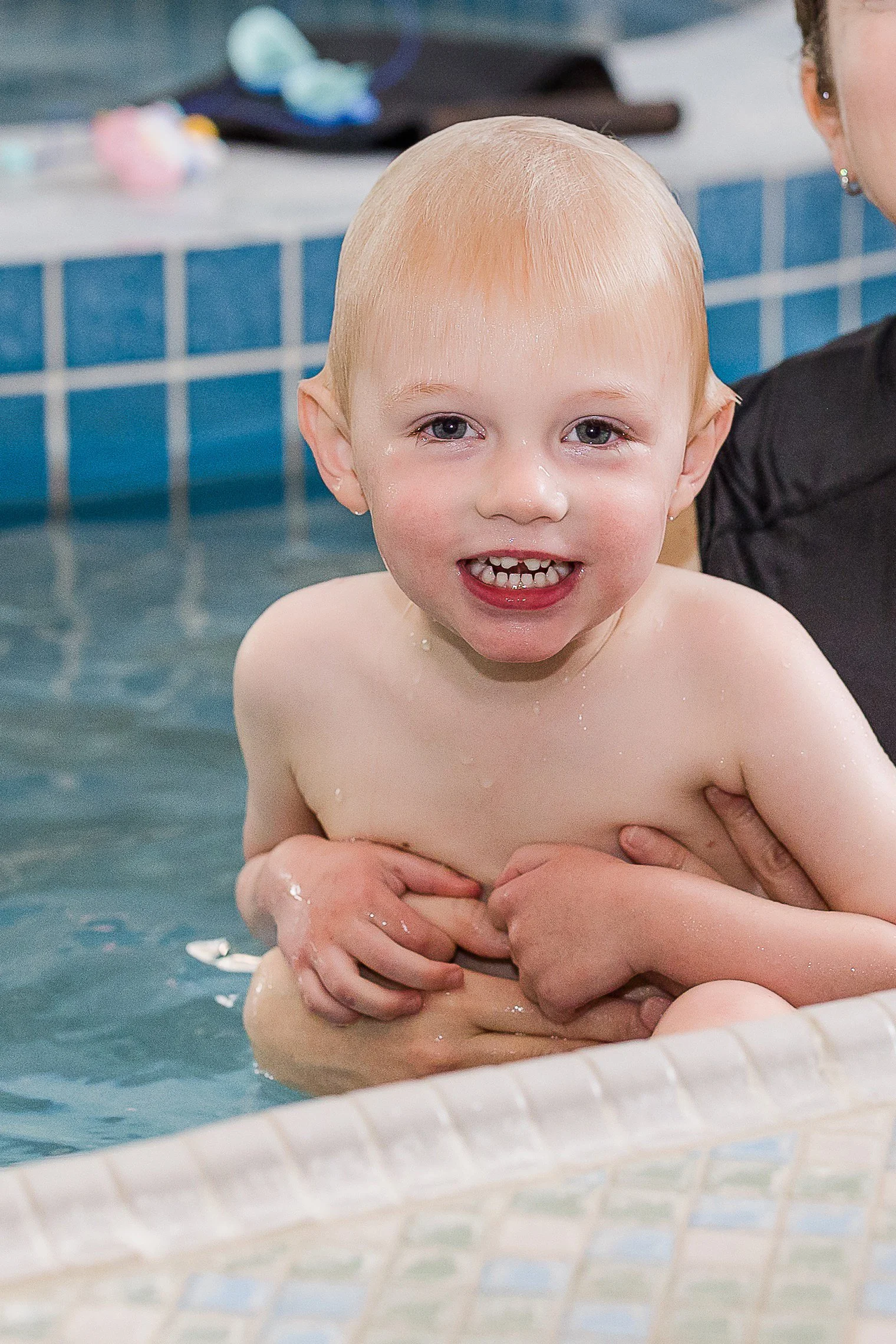What is Survival Swimming?
Should all other safety precautions fail, teaching your child survival swimming skills gives them a chance for survival.
Swimming is the ability to move through the water independently. Survival swimming incorporates being able to breathe when needed.
Many programs teach children to lift their heads to breathe. This motion takes a significant amount of strength and energy and is very difficult to maintain. Using this head lift will cause a child to fatigue very quickly.
The better alternative is to teach a child how to attain and maintain a back float. This position allows for rest and unlimited access to air.
Starfish Infant Aquatics teaches children the aquatic survival skills to potentially save themselves in an emergency situation.
Most importantly, the Starfish Infant Aquatics student will have practiced all the SURVIVAL SWIMMING skills while fully clothed before completing their lesson session.
There are so many benefits to learning how to swim at a very young age. Here are just a few:
Why teach a young child to swim?
Reduces the risk of childhood drowning.
Drowning is the number one cause of accidental death for kids who are 1-4 years old (CDC). A 2009 study led by Dr. Ruth Brenner at the National Institutes of Health (NIH) concluded that participation in formal swimming lessons was associated with an 88% reduction in the risk of drowning in children under 5. This demonstrates that swim lessons should be part of a comprehensive drowning prevention strategy from an early age!
Enhances physical, cognitive and emotional development.
In 1979, scientists at the German Sports College of Cologne studied the effects of year-round swimming lessons on very young children. They found that those who participated in the infant swim lessons accelerated their development physically, intellectually and emotionally.
Compared with a control group that did not take year-round lessons, the children who swam consistently from infancy were significantly stronger and more coordinated. The children scored higher for intelligence and problem solving, which carried over into excellence in academic achievement. Emotionally, they were found to have more self-discipline, greater self-control and an increased desire to succeed. They rated higher in self-esteem and were more independent and comfortable in social situations than the control groups.
It's easier for them and provides a solid foundation for stroke lessons when they are older.
According to renowned psychologist Jean Piaget, children under 2 years old are sensorimotor learners, meaning they primarily learn from using their senses to interact with their environment. Kids this age are hardwired to learn how to sit up, crawl, walk and swim!
Additionally, the earlier children learn how to swim, the less likely they will have learned bad habits around the water like wearing water wings, puddle jumpers, etc. These devices not only give them (and caretakers) a false sense of security but also promote head/body postures in the water that are counterproductive for successful swimming that can be difficult to correct.
Lesson Times
All initial lessons are held Monday-Thursday for 10 minutes per day (4x/week). Your child will have the same lesson time each day during their session.
Initial lessons are only offered in the mornings for now. However, we do offer times as early as 6:30 am to better accommodate working parents.
Depending on the location, here are 2025 session start dates:
January 6, February 17, April 7, May 27, July 7, August 25, & October 6
Scheduling
Please plan on your child finishing in these time frames, assuming consistent attendance:
Infant Rollback-to-Float: 10 min/day for 6 weeks
Child Swim-Float-Swim: 10 min/day for 6 weeks
All initial lessons are held 4 days/week (M/T/W/Th), and your child will have the same time each day for the duration of the 6-week session (24 lessons total).
Please note: Student lessons will not begin until the student previously in a given time slot has completed his/her lessons. Safety is our priority, and I will not conclude a child's lessons until I believe his skills are complete. I will contact you a week prior to your start date if there are any issues.











